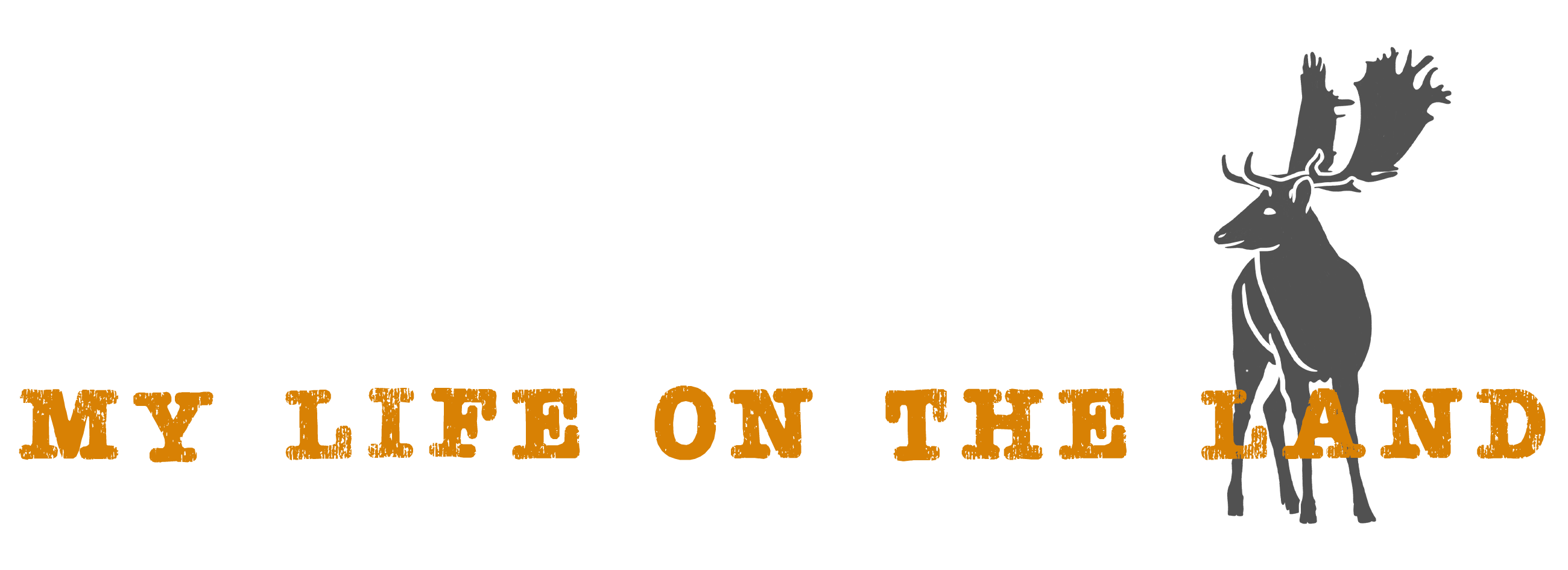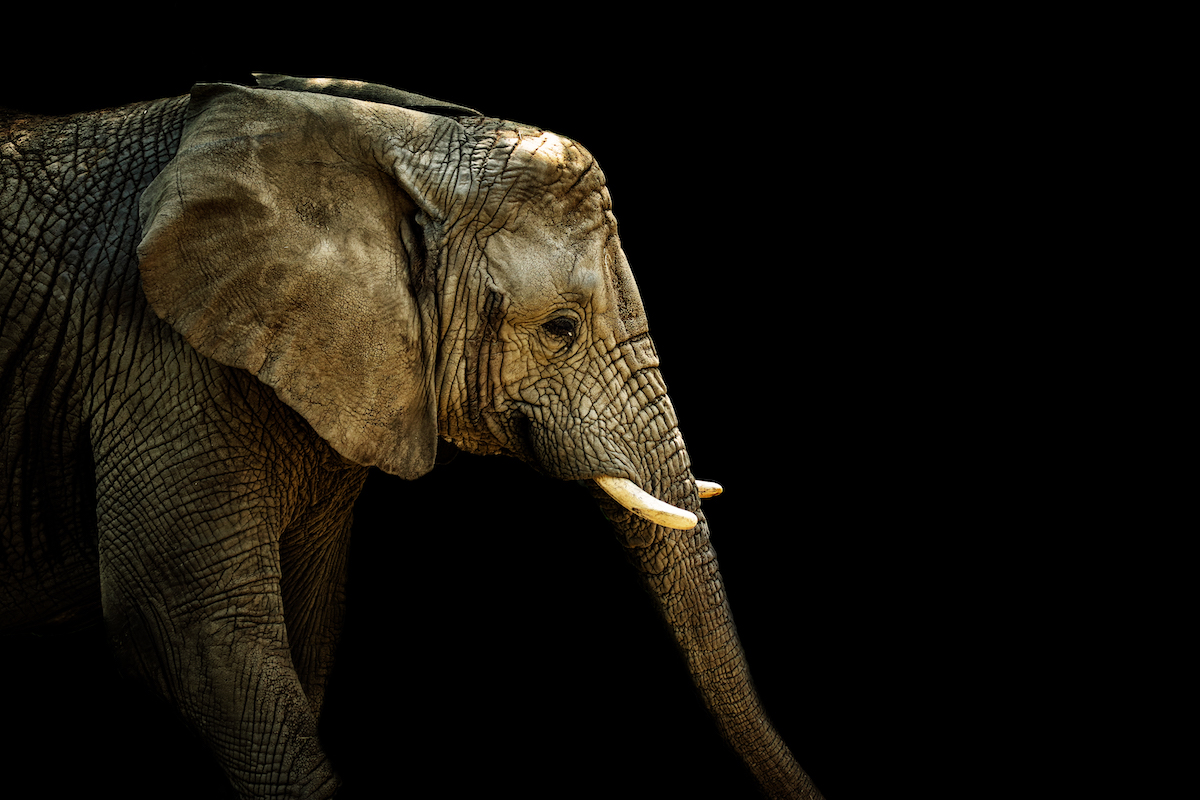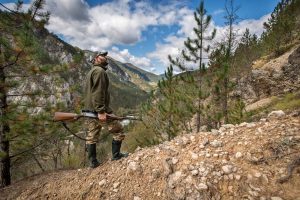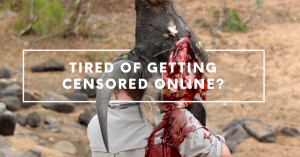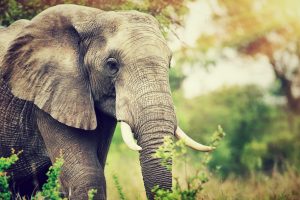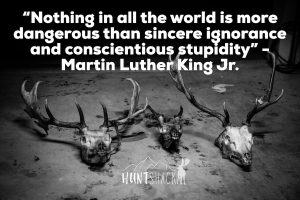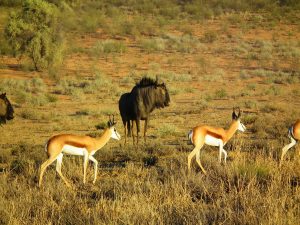Hunting and poaching. They are two wildly different activities, both in definition and law, but unfortunately, animal activists and the media insist on using the terms interchangeably. This creates confusion and muddies the waters between a legal, regulated activity, and a criminal activity. In this article, we lift the lid on poaching and demonstrate why the terms hunting and poaching should not be used interchangeably.
The definition of hunting
Hunting is defined as the practice of seeking, pursuing, capturing or killing wild animals for meat, recreation, or to remove pests or predators. Broadly speaking, hunting is classified as part of primary production, alongside forestry, agriculture and fishing. The etymology of the word hunt refers to chasing and seizing – both important aspects of fair-chase hunting.
In other words, hunting is done within the confines of law and regulations, and with the permission of the landholder.
In most countries, hunting is subject to a number of rules and regulations that set out when and where certain animals can be legally harvested, how many animals can be legally taken, and even what hunting tools can be used within those seasons. Violating any of those rules and regulations – whether deliberately or unintentionally – is illegal, and is punishable by law.
The definition of poaching
Broadly speaking, poaching is defined as illegally hunting or killing wildlife on land that is not one’s own, or in contravention of official protections.
But to really understand the many different facets of poaching, you need to look at it both from a historical and a regional point of view.
Historically speaking, poaching was the term applied to peasants hunting territorial lands for subsistence, or to supplement poor diets. It was tied up in aspects of privilege, nobility and feudal rules, which almost made it a ‘Robin Hood’ type activity, stealing from the rich to feed the poor.
But what actually constitutes poaching can also depend on your location.
How big a problem is poaching?
When we think about poaching, our minds generally go to Africa, and the illegal trade in wildlife parts. Wildlife trafficking is the fourth most lucrative crime in the world, behind the trafficking of drugs, humans and weapons, and is often tied to organised crime (making it very hard to crack). Wildlife trafficking is estimated to be worth $23 billion a year!
Two of the most vulnerable species to poaching are elephants (for their ivory) and rhinoceros (for their horns).
An estimated 33,000 elephants are illegally killed each year throughout Africa. While the numbers are far less for rhinoceros, that is only because they are already perilously close to extinction and therefore there are fewer rhinos to poach. The rareness of the animal only pushes up its value on the black market, with a kilo of rhinoceros horn ranging anywhere from $60,000 USD to $300,000 USD.
But it’s not just elephants and rhinos that fall victim to the illegal wildlife trade.
Many other iconic species throughout Africa, Asia and even Australia are targeted for their body parts or to be sold as exotic pets: lions, leopards, tigers, monkeys, iguanas, rare birds, snakes, kangaroos, koalas and more get poached and sold on the black market.
Some of this is driven by a desire for exotic pets; some to feed the traditional medicine markets of Asia (where exotic treatments such as rhino horn, tiger testicles and monkey brains are still regularly consumed).
The rarer the animal, the more money people are willing to pay for it. And the more money involved in that activity, the more people are willing to kill for it!
There is a reason that this type of activity is so universally abhorred. Not only is it cruel, indiscriminate and completely selfish, it is also criminally wasteful and has no thought for sustainability. If poaching had an axis of evil, the illegal trafficking of wildlife would be right at the top – it only takes and gives nothing back.
The common poacher
But while the illegal trade in wildlife parts is definitely a visceral part of poaching, and a big problem for endangered wildlife, it is not the only form of poaching.
Another far more common form of poaching occurs all around the world when a game species (ie a legal animal to hunt) is killed without the proper permissions and/or licences.
In rural areas of Africa and Asia, poverty, unemployment, regional conflicts and a lack of land ownership means tribal people will often turn to wildlife for survival – both as a source of food and income.
In Western countries, poaching more often occurs when people choose to ignore hunting regulations and laws. Sometimes people deliberately set out to break these laws and regulations. But there are plenty of instances where you could inadvertently break the law and be deemed a poacher in the eyes of the law. Depending on where you are, these can include:
- Hunting off a public road
- Jumping a boundary fence to pursue or retrieve an animal, crossing onto a property you do not have permission to be on (in Australia, this is considered trespassing with a firearm, which is a serious criminal offence)
- Hunting with a torch or spotlight without the correct permits
- Hunting with a firearm caliber that is less than the regulated minimum for that species
- Taking wildlife that has been listed as endangered by the IUCN or which is protected by laws such as the Endangered Species Act, or international treaties such as CITES
- Hunting or fishing without a license, or taking wildlife outside of legal hours or regulated hunting seasons
- Taking wildlife using prohibited methods (ie, machine guns, poisons etc)
- Taking wildlife using bait, decoys or other methods that increase your chances (and therefore decrease the fair chase methodology of hunting)
- Hunting from a moving vehicle or aircraft (this includes scouting game animals from an aircraft), or under spotlight without the correct permits
- Hunting on private property, or land that is restricted or licensed to somebody else
- Hunting an animal that has been tagged by a researcher
- Shooting an animal in a confined area (canned hunting)
Muddying waters through twisted etymology
You might be wondering why any of this is important? It’s just a word, after all. Aren’t we being a little pedantic and picky?
No, I don’t believe we are. Word etymology is important. Not only does it change context, it also has the power to change legality!
Animal activists are very deliberate in using the terms interchangeably. By using the terms hunt and poach interchangeably, they create a link between two vastly different activities and deliberately blur the lines between what is lawful and what is illegal.
If you don’t believe that this has a long term effect on the way hunting is perceived, look at how even the hunting community itself has changed their views on trophy hunting. And how even hunters have begun calling deer feral in Australia!
What is I Am Hunter?
I Am Hunter wants to change the way hunting is perceived and to change the conversation from a negative one driven by anti-hunters to a positive one led by hunters.
Our goal is to help hunters become positive role models and ambassadors for hunting, while simultaneously helping non-hunters understand why hunting is important.
You can become a supporter and help us achieve our goal and spread a positive message about hunting with the wider community.
Related content
Our other channels
Get our newsletter
Get our free monthly newsletter direct to your inbox
Listen on iTunes
Listen to our podcast on iTunes.
TV series
Watch I Am Hunter episodes on My Outdoor TV (MOTV)
